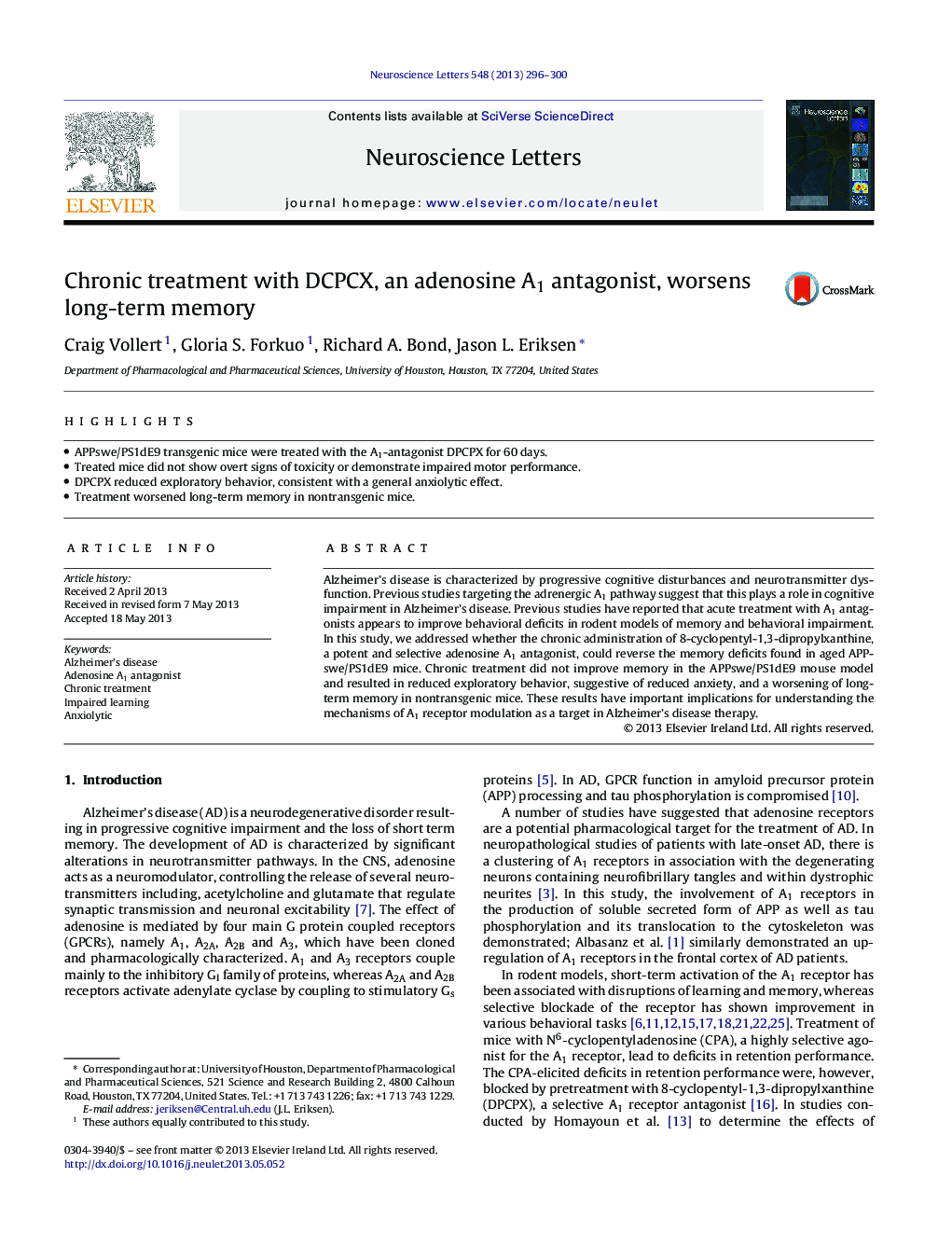| Article ID | Journal | Published Year | Pages | File Type |
|---|---|---|---|---|
| 6283054 | Neuroscience Letters | 2013 | 5 Pages |
Abstract
Alzheimer's disease is characterized by progressive cognitive disturbances and neurotransmitter dysfunction. Previous studies targeting the adrenergic A1 pathway suggest that this plays a role in cognitive impairment in Alzheimer's disease. Previous studies have reported that acute treatment with A1 antagonists appears to improve behavioral deficits in rodent models of memory and behavioral impairment. In this study, we addressed whether the chronic administration of 8-cyclopentyl-1,3-dipropylxanthine, a potent and selective adenosine A1 antagonist, could reverse the memory deficits found in aged APPswe/PS1dE9 mice. Chronic treatment did not improve memory in the APPswe/PS1dE9 mouse model and resulted in reduced exploratory behavior, suggestive of reduced anxiety, and a worsening of long-term memory in nontransgenic mice. These results have important implications for understanding the mechanisms of A1 receptor modulation as a target in Alzheimer's disease therapy.
Related Topics
Life Sciences
Neuroscience
Neuroscience (General)
Authors
Craig Vollert, Gloria S. Forkuo, Richard A. Bond, Jason L. Eriksen,
